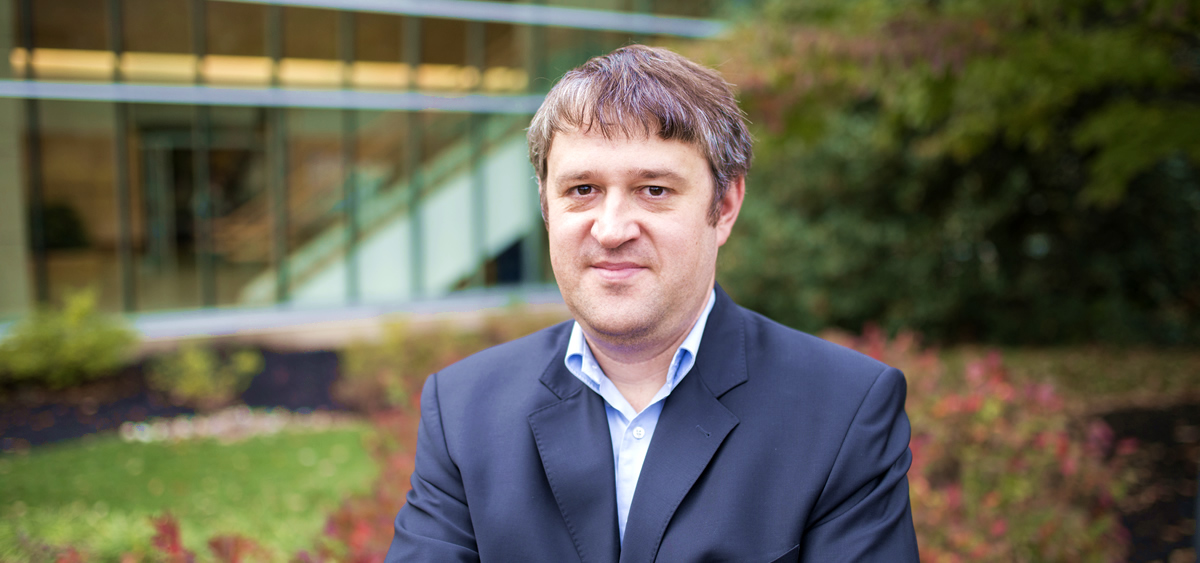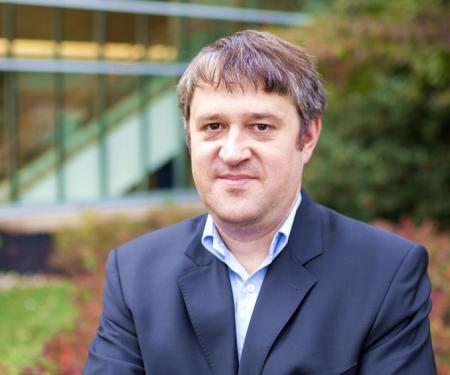Weather Alert: Following the winter storm, all Temple Health hospitals, campuses and clinical locations remain open. Patients will be contacted directly if their visit is affected. Please check TempleHealth.org or FoxChase.org for updates and monitor myTempleHealth for changes to scheduled appointments.
Breadcrumb
- Home
- Fox Chase Cancer Center News
- Sergey Grivennikov Receives National Cancer Institute R01 Grant for Colorectal Cancer Research
Sergey Grivennikov Receives National Cancer Institute R01 Grant for Colorectal Cancer Research

PHILADELPHIA (August 29, 2018)— Sergey Grivennikov, PhD, assistant professor in the Cancer Prevention and Control Program at Fox Chase Cancer Center, has received a R01 grant from the National Cancer Institute to support research on the connection between inflammation and colorectal cancer. The grant will provide approximately $280,000 per year over five years.
The Grivennikov laboratory studies the molecular and cellular mechanisms underlying how immune and inflammatory pathways promote tumor growth and progression. With this grant, they will seek to understand how inflammation regulates colorectal cancer progression.
The lab will conduct studies to define the contribution of IL-17B/RB signaling to colorectal cancer, and evaluate its mechanisms of action. A short-term goal is to establish a rationale for the specific inhibition of inflammation by targeting the IL-17RB pathway and to study basic mechanisms of cytokine signaling in cancer. The long-term goal is to propose improved colorectal cancer prevention and treatment practices based upon better understanding of molecular predictors of primary and recurrent metastasis.
“Despite important advances, colorectal cancer is the second leading cause of cancer-related death in the U.S.,” said Grivennikov. “We will use this funding to the best of our ability to understand the inflammatory causes of cancer progression, in order to improve outcomes.”
Fox Chase Cancer Center (Fox Chase), which includes the Institute for Cancer Research and the American Oncologic Hospital and is a part of Temple Health, is one of the leading comprehensive cancer centers in the United States. Founded in 1904 in Philadelphia as one of the nation’s first cancer hospitals, Fox Chase was also among the first institutions to be designated a National Cancer Institute Comprehensive Cancer Center in 1974. Fox Chase is also one of just 10 members of the Alliance of Dedicated Cancer Centers. Fox Chase researchers have won the highest awards in their fields, including two Nobel Prizes. Fox Chase physicians are also routinely recognized in national rankings, and the Center’s nursing program has received the Magnet recognition for excellence six consecutive times. Today, Fox Chase conducts a broad array of nationally competitive basic, translational, and clinical research, with special programs in cancer prevention, detection, survivorship, and community outreach. It is the policy of Fox Chase Cancer Center that there shall be no exclusion from, or participation in, and no one denied the benefits of, the delivery of quality medical care on the basis of race, ethnicity, religion, sexual orientation, gender, gender identity/expression, disability, age, ancestry, color, national origin, physical ability, level of education, or source of payment.
For more information, call 888-369-2427
